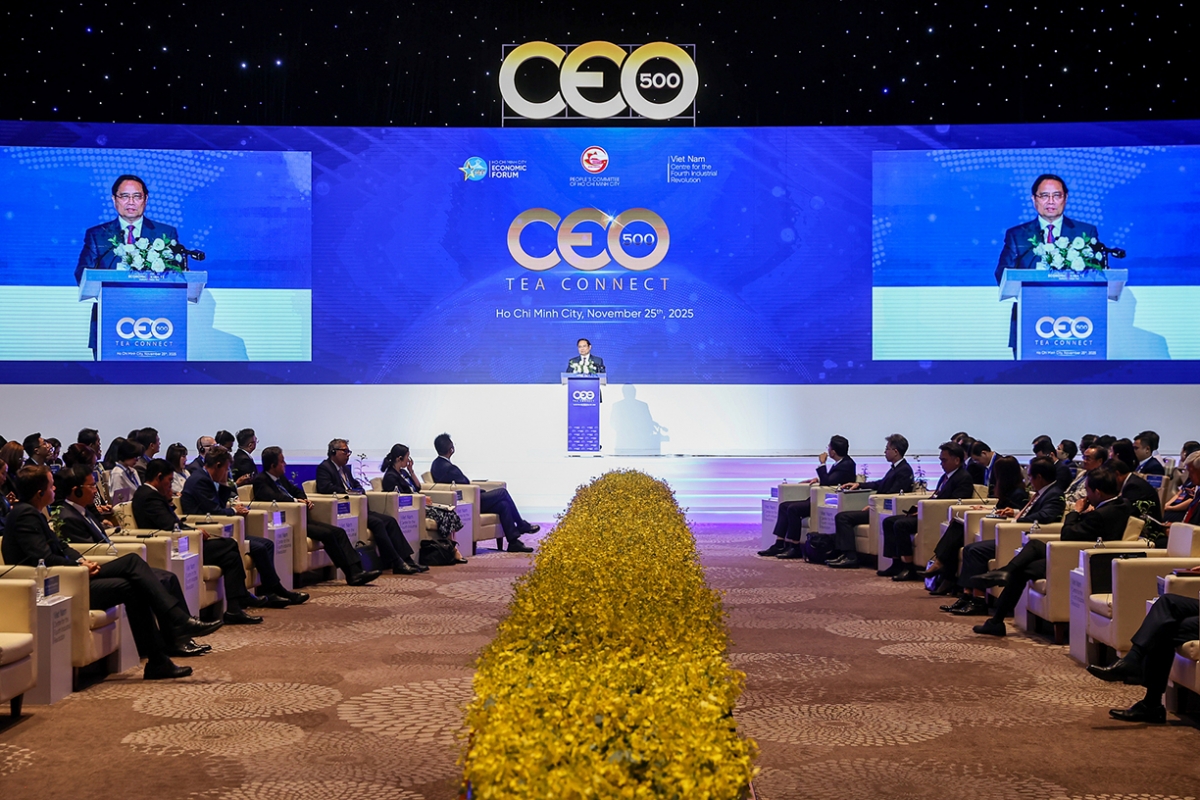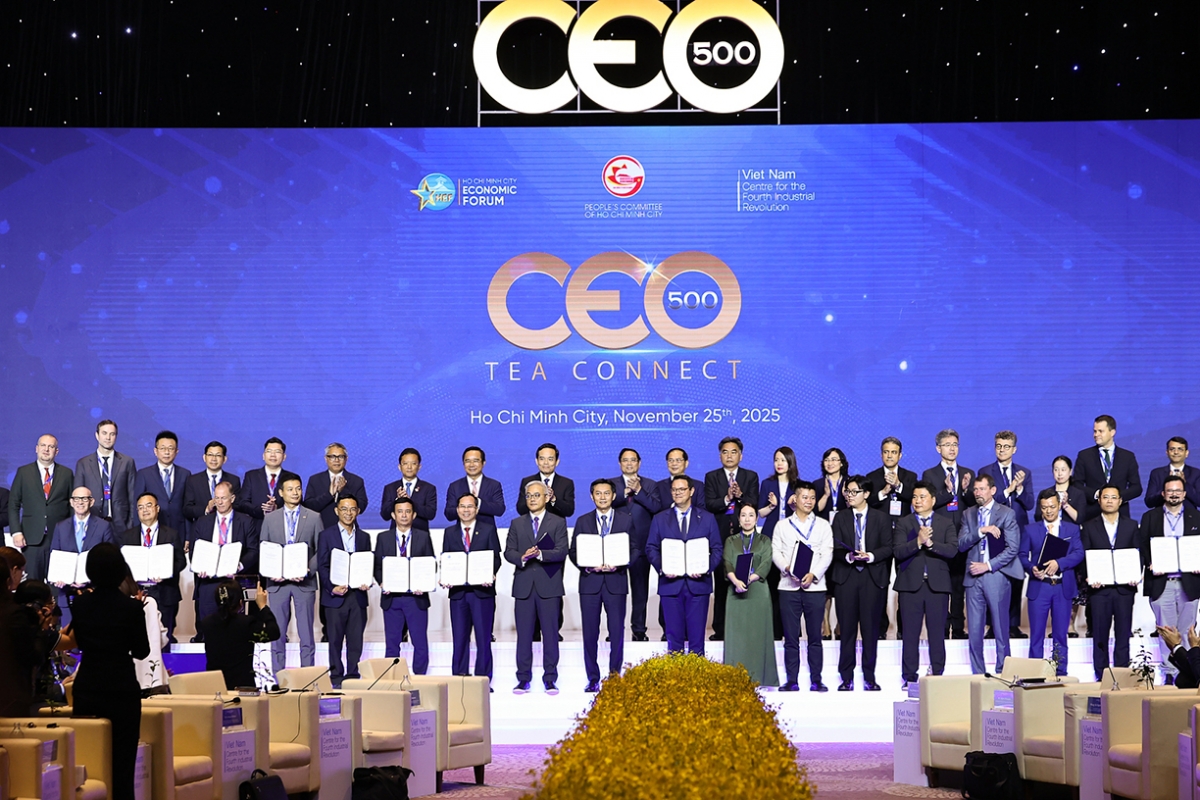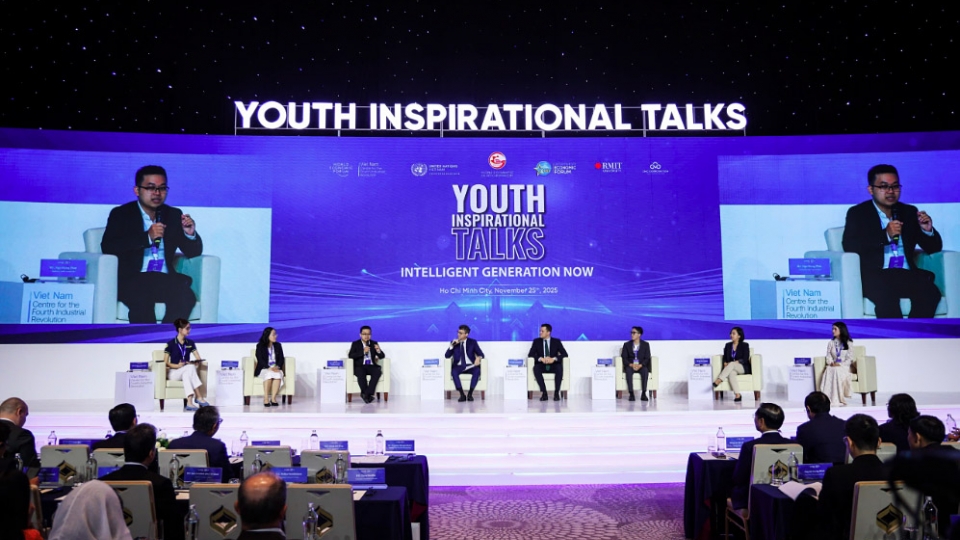PM shares Vietnam’s development strategy at CEO500 Tea Connect
VOV.VN - Prime Minister Pham Minh Chinh shared key directions for Vietnam’s socio-economic development in the digital era at the CEO 500 – Tea Connect dialogue programme, held in Ho Chi Minh City on November 25 as part of the ongoing 2025 Autumn Economic Forum.

In his address, the Prime Minister highlighted Vietnam’s remarkable achievements over the past few decades, particularly since the launch of the Doi Moi (Renovation) process in 1986.
Over the past 40 years of economic reform, Vietnam has transformed from a war-torn, isolated country into a dynamic, developing economy. GDP has risen from US$4 billion to nearly US$510 billion, placing Vietnam among the world’s top 32 economies. The average income per capita has grown from around US$100 in the post-war era to approximately US$5,000. Vietnam has also emerged as one of the leading countries globally in trade and investment attraction.
From being a nation under siege and sanctions, Vietnam has established diplomatic relations with 194 countries, formed comprehensive strategic partnerships with five permanent members of the UN Security Council, and signed 17 Free Trade Agreements (FTAs) with over 60 countries.
In the current global context, Prime Minister Chinh emphasised Vietnam’s priority to maintain macroeconomic stability, control inflation, and ensure economic balances while continuing to promote growth. He expressed his appreciation for the valuable contributions of international partners, including investors and businesses, in the country’s development.
Despite facing numerous global challenges, such as slow growth, rising public debt, and trade disruptions, the Prime Minister affirmed that Vietnam remains steadfast in its long-term development goals. By 2030, it aims to become a developing country with modern industry and a high middle-income status. By 2045, the goal is to achieve developed country status with high-income levels.
To do this, the Prime Minister stressed that Vietnam would focus on three foundational pillars, by building a socialist-oriented market economy, strengthening international integration, and upholding the rule of law. This approach, he said, not only helps to enhance economic growth but also ensures core values such as social equity, political stability, and environmental protection are maintained.
He further noted that Vietnam will continue to build an independent and self-reliant economy, while actively engaging in international integration to open up more cooperation opportunities and foster sustainable growth. Its foreign policy will remain independent, multilateral, and cooperative, addressing global issues for peace, stability, and development.

During the dialogue, Prime Minister Chinh outlined three strategic breakthroughs that Vietnam is implementing, namely a transparent institutional framework, seamless infrastructure, and smart governance. These elements are critical to accelerating growth and ensuring long-term sustainability in the digital age.
In addition, he said, Vietnam will introduce six key policies to ensure equitable and inclusive development, including fostering economic independence, pursuing a flexible foreign policy, ensuring national defence and security, promoting culture, and safeguarding social welfare. The Prime Minister stressed that improving the quality of life for all citizens, including access to education, healthcare, and social services, will remain a top priority.
Prime Minister Chinh particularly emphasised the importance of public-private partnerships (PPP) in strategic projects. He urged international partners to continue collaborating with Vietnam, especially in areas such as infrastructure, education, digital technology, and finance.
The PM also underscored the importance of Ho Chi Minh City in Vietnam's overall development strategy. As the nation’s largest financial and economic hub, he said, the city must leverage its strengths to become an international megacity, capable of competing with major cities in the region and globally. To achieve this, Ho Chi Minh City must focus on developing digital infrastructure, establishing an international financial center, and reforming its institutional environment to attract investment.
CEO 500 – Tea Connect, part of the 2025 Autumn Economic Forum in Ho Chi Minh City, attracted over 500 domestic and international business leaders. The forum is taking place in the city from November 25 – 27.




